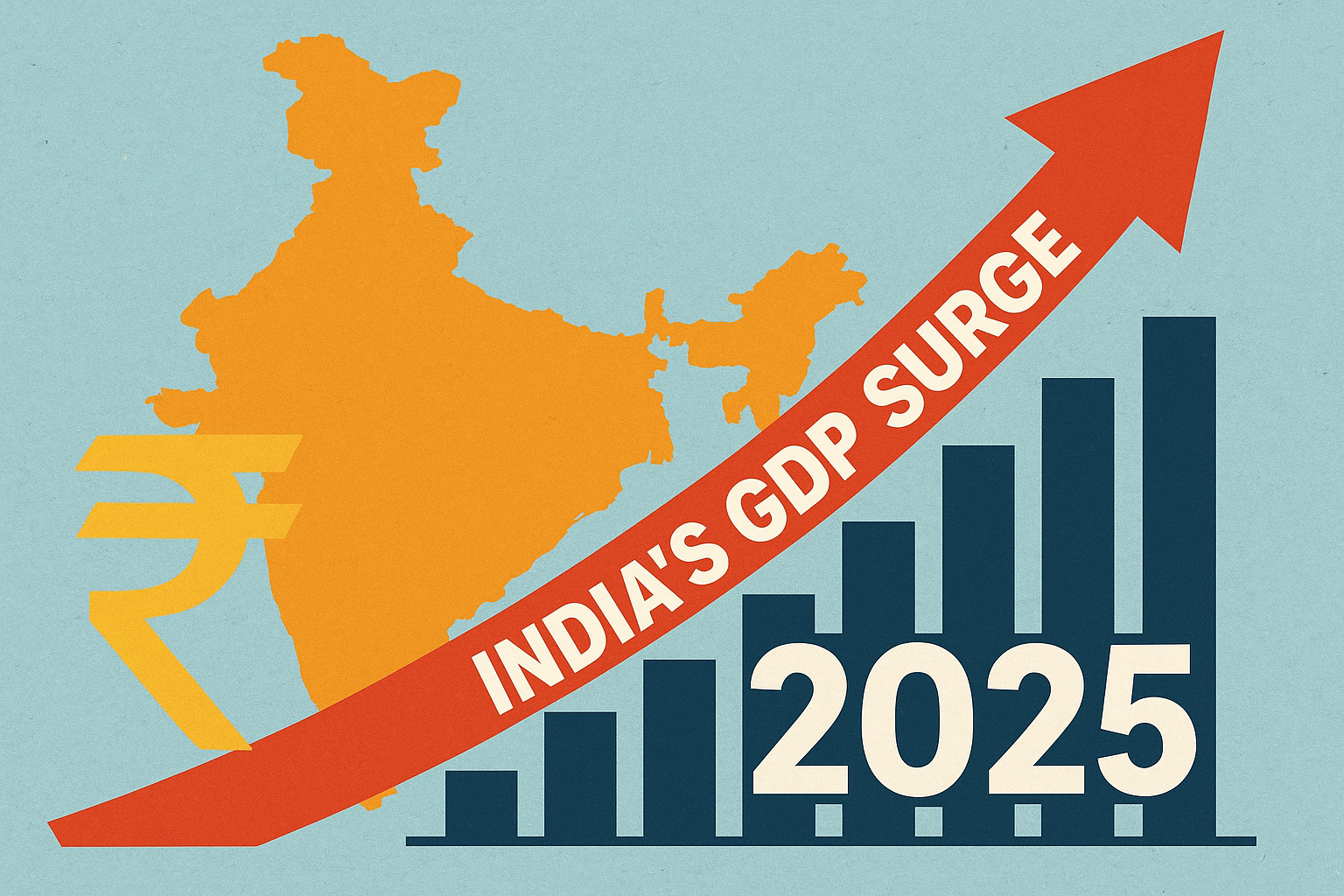Managing personal finances is an efficient way that involves constantly being up to date with the frequent changes in financial rules, policies and trends in the market that have an impact on the budgets of households.
Regular monitoring of the changes in areas such as tax, banking fees, payment systems, inflation, and government schemes can make Indian families more money-wise, and at the same time, they can eliminate the possibility of being taken by surprise. Being up to date enables households to change their spending, saving, and investing plans in accordance with the changes in regulations, thus being ready to face challenges such as an increase in fees, tax deadlines, and changes in inflation. To learn more, read the full blog for simple weekly personal finance updates.
Key weekly money updates
Several important developments that can affect household budget plans across India are.
Retail Inflation Eases
India’s retail inflation reading by the Consumer Price Index (CPI) dropped to 1.55% in July 2025, the lowest point since June 2017. This represents a major fall from 2.10% in June 2025. The decline was matter-of-factly led by a trend of deflation in the food sector at -1.76% as prices of pulses, vegetables, cereals, eggs, and sugar have gone down. The rural area inflation rate fell to 1.18% whereas the urban area inflation rate was 2.05%. The inflation rates of housing, education, and health were at normal levels, and the inflation for fuel and light showed a minimal increase to 2.67%.
New UPI Usage Rules
From 1 August 2025, new rules have been introduced for the Unified Payments Interface (UPI) to streamline its usage. Balance checks have been limited to 50 per day per app to cut down the number of enquiries that caused network congestion. Apps are required to refresh balances automatically to provide users with up-to-date and accurate account information. In addition, a set of measures, including the restriction of transaction volumes during peak hours, has been introduced with the goal of smoothing the processing of the high number of digital payments across the system.
With the new UPI rules in place, users are likely to experience both positive outcomes and certain challenges in day-to-day transactions.
Benefits
- Helps keep the UPI system running smoothly by cutting out unnecessary usage during peak times.
- Provides the most accurate account balances, significantly reducing the likelihood of disputes or errors during transactions.
- Through the regulation of peak-time congestion, daily payment and transfer activities are rendered more stable.
Difficulties
- Account management users of high frequency, such as small business owners, may find the 50-check cap a restriction on their activity.
- The control of auto-pay could cause scheduled payments or subscriptions to be delayed or imposed during the busy period.
- As a transition, the change may come across as an inconvenience to many users who are accustomed to unlimited balance checking and uninterrupted auto-payments.
Banking Charges Revised
Several banks, such as HDFC, have changed their savings account conditions from August 1, 2025, with the main point being the lowering of free transaction limits and the hike in charges.
HDFC Bank has set a limit of 4 free cash transactions per month only; any cash withdrawal made after that will attract a charge of ₹150. The free monthly cash withdrawal limit at bank branches has been reduced to ₹1 lakh, and a cash deposit or withdrawal charge of ₹5 for every ₹1,000, with a minimum of ₹150, applies. NEFT transactions at the bank branch are being charged between ₹2 and ₹24, depending on the amount. The RTGS and IMPS fees have also been altered. The fees for the return of cheques, the issuance of certificates, and the ECS/ACH return have been increased significantly, so customers need to keep a close eye on their transactions to avoid being charged.
GST Removal on Insurance
A proposition is in the pipeline for abolishing the Goods and Services Tax (GST) on life and health insurance in India. At present, policyholders are required to pay 18% GST on most insurance premiums, which raises the total cost of the policy. Thus, if the relief is given, the buyers will have to pay the base premium only, which will be determined by the insurers, and hence, the insurance can be easily available, and more people can be insured all over the country.
Comments from the industry are that the real reduction of premiums will depend on the manner in which the insurance companies take the loss of the input tax credit that is given to them for their backend costs. The objective is to enable more people to have access to and to afford insurance. The proposal will be discussed at an upcoming GST Council meeting and, if accepted, could come into effect as early as late 2025.
Updated ITR Filing (ITR-U)
The Central Board of Direct Taxes (CBDT) is enabling the taxpayers to submit an updated Income Tax Return (ITR-U) through ITR-3 and ITR-4 forms for the assessment years 2021-22 and 2022-23.
According to the Finance Act, 2025, an individual can file a revised return under Section 139(8A) of the Income Tax Act for up to 48 months from the end of the relevant assessment year. The extension allows the taxpayers to rectify the mistakes or omissions in the first returns, even when they have not filed or have filed incorrectly, by paying the additional taxes. Yet, ITR-U is not meant to be used for nil returns, returns reducing tax liability, or refunds. If a search, seizure, or prosecution is going on, then filing is not allowed.
For AY 2025-26, the last day to file ITR-U is 31 March 2030, and there is a penalty for the filing date.
New EPFO Rules
The Employees’ Provident Fund Organisation (EPFO) has streamlined the settlement of claims, in particular, the claims of the death of a member. In the past, the dependents used to go through a lot of trouble and wait for a long time as they had to provide multiple documents for lengthy verification.
The revised regulations have simplified the paperwork process, with more use of electronic records and internal checks, which makes the settlement quicker, transparent, and less tedious. It is an improvement that allows families to get the money they are entitled to in a short time period during their distress.
Either the nominee, a legal heir (in the absence of a nominee), or the guardian of a minor can submit EPF Form 20.
| Aspect | Old Rule | New Rule |
| Claim Settlement Timeline | Lengthy processing, often delayed due to multiple stages of verification | Lengthy processing, often delayed due to multiple stages of verification |
| Required Documents | Multiple papers needed (various IDs, certificates, forms for verification) | Reduced paperwork, with stronger reliance on internal checks and digital records |
| Death Claims | Time-consuming, caused additional hardship for families | Quicker access to funds for families/dependants with minimal documents |
| Process Transparency | Manual verification, room for delays or errors | Streamlined digital system, minimising chances of disputes or mistakes |
| User Effort | Claimants had to manually collect and submit several documents | Claimants face less burden, as EPFO handles more verification internally |
Conclusion
New trends in personal finance have a significant impact on the way Indian families handle their money. Changes such as shifts in inflation, new UPI rules, revised banking charges, and updated tax filing options underscore the need to stay informed. All these changes show that consumers must be aware of what’s happening around them. Financial news can be helpful for households that want to be up to date on the latest laws and want to change their expenses and savings accordingly, thus being able to keep track of their budgets and plan their finances.
DISCLAIMER: The information given in this blog is for educational purposes only. Any content of this blog is not investment advice.
- Make in India 2.0: How Manufacturing Is Reshaping Market Sentiment - December 13, 2025
- Real Estate Boom : Why Tier-2 Cities Are Attracting Big Investors - December 12, 2025
- India’s GDP Surge 2025: What the New Growth Numbers Mean for Markets - December 9, 2025





